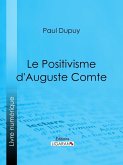In "Auguste Comte and Positivism," John Stuart Mill offers a comprehensive examination of the philosophical framework proposed by Auguste Comte, the father of positivism. Mill's text is marked by a critical yet appreciative tone, demonstrating his engagement with Comte's ideas on science and society. He navigates through the intricacies of positivism, elucidating its core tenets while also addressing its implications for epistemology and ethical thought. This work is situated in the broader context of 19th-century Enlightenment ideals, reflecting Mill's commitment to empiricism and rationality while simultaneously grappling with the limitations of Comte's systematic approach to understanding social phenomena. John Stuart Mill, a prominent figure in classical liberalism, was heavily influenced by the intellectual milieu of his time, including the works of Jeremy Bentham and the evolution of scientific reasoning. His keen interest in social reform, derived from his background and personal experiences within a utilitarian household, guided his exploration of Comte'Äôs ideas. Mill'Äôs philosophical background and his advocacy for liberty and individuality informed his perspective on positivism, as he sought to reconcile scientific inquiry with ethical considerations. "Auguste Comte and Positivism" is a must-read for scholars and students alike who seek to understand the interplay between science, philosophy, and sociology. Mill'Äôs critical analysis not only enriches our comprehension of positivism but also offers valuable insights into the perennial questions of knowledge, progress, and human values. This book provides a pivotal lens through which to examine the evolution of social thought and is essential for anyone interested in the foundations of modern philosophy.
Dieser Download kann aus rechtlichen Gründen nur mit Rechnungsadresse in A, B, BG, CY, CZ, D, DK, EW, E, FIN, F, GR, H, IRL, I, LT, L, LR, M, NL, PL, P, R, S, SLO, SK ausgeliefert werden.









